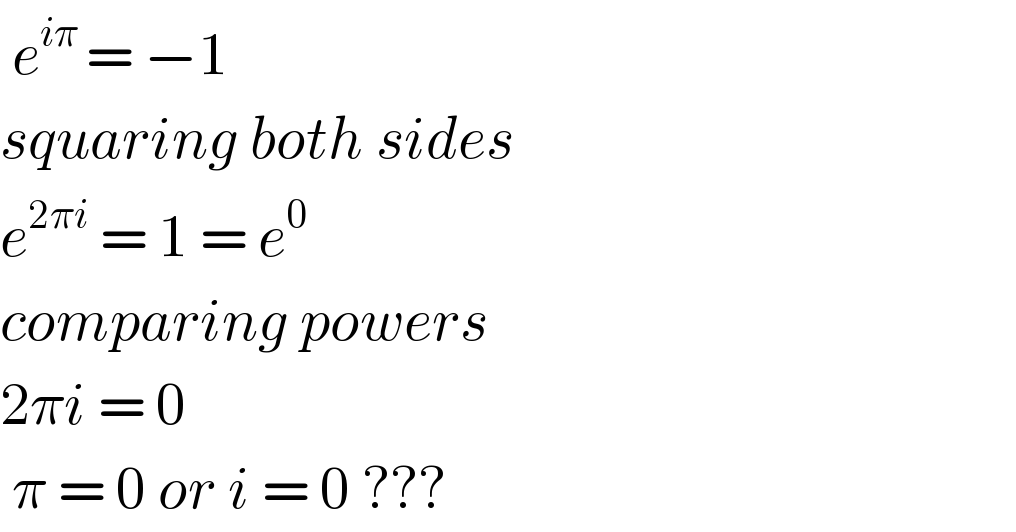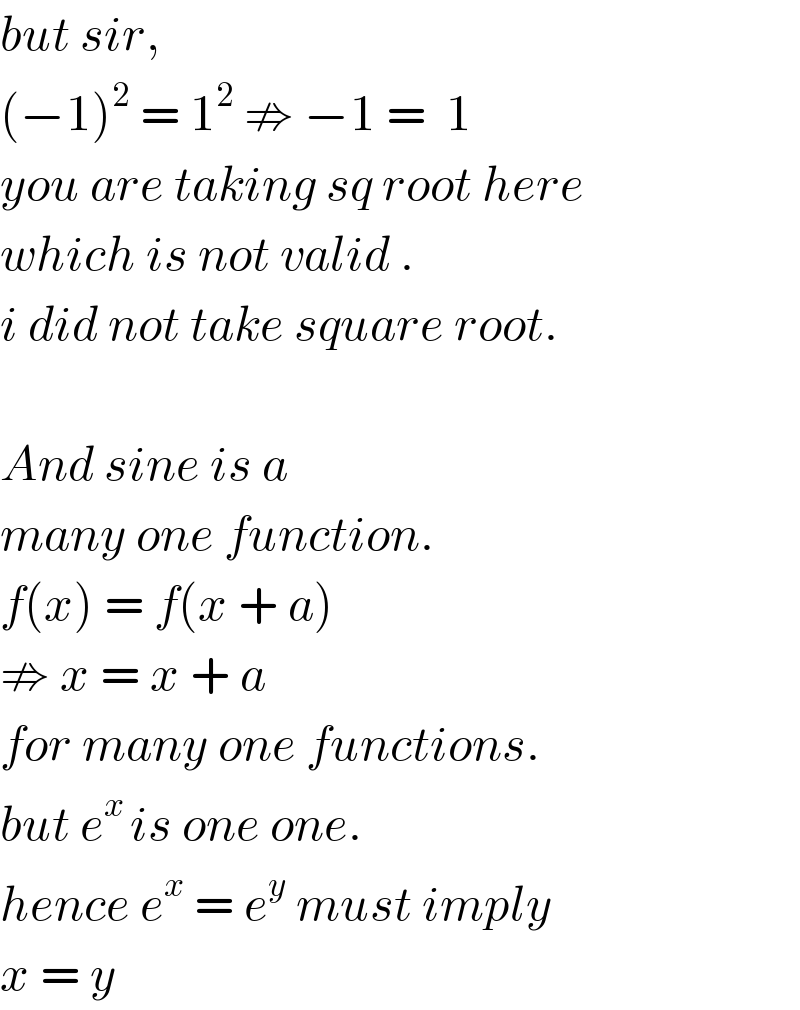Question Number 33473 by 33 last updated on 17/Apr/18

Commented by abdo imad last updated on 17/Apr/18
![look sir the fonction R→]0,+∞[ /f(x)=e^x is abijection from R to ]0,+∞[ for that we have e^x =e^y ⇔ x=y but the function R →C / g(x) =e^(ix) is not a bijection and e^(ix) =e^(iy) ⇔ x =y +2kπ with k ∈ Z and if z =r e^(iθ) ,r>0 ln(z) = lnr +i(θ +2kπ) but we take only ln(z)=lnr +iθ as a principal determination of the complex logarithme .](https://www.tinkutara.com/question/Q33480.png)
Commented by Joel578 last updated on 17/Apr/18

Commented by 33 last updated on 17/Apr/18

Answered by MJS last updated on 17/Apr/18
![you can′t compare the powers in this case, because e^(ϕi) is a periodic function z=a+bi=r(cos ϕ+isin ϕ)=re^(ϕi) [with r=abs(z)=(√(a^2 +b^2 )) and ϕ=tan^(−1) (b/a)] because sin ϕ and cosϕ are periodic it should be clear that for n∈N_0 z=r(cos(ϕ±2nπ)+isin(ϕ±2nπ)) ⇒ ⇒ z=re^(ϕ±2nπ) therefore, e^0 =e^(2πi) ⇏ 0=2πi but you made another mistake: x^y =−1 ∣^2 x^(2y) =1 x^(2y) =x^0 2y=0 y=0 BUT x^0 ≠−1 ⇒ squaring both sides might lead to wrong results](https://www.tinkutara.com/question/Q33477.png)
Commented by 33 last updated on 17/Apr/18

